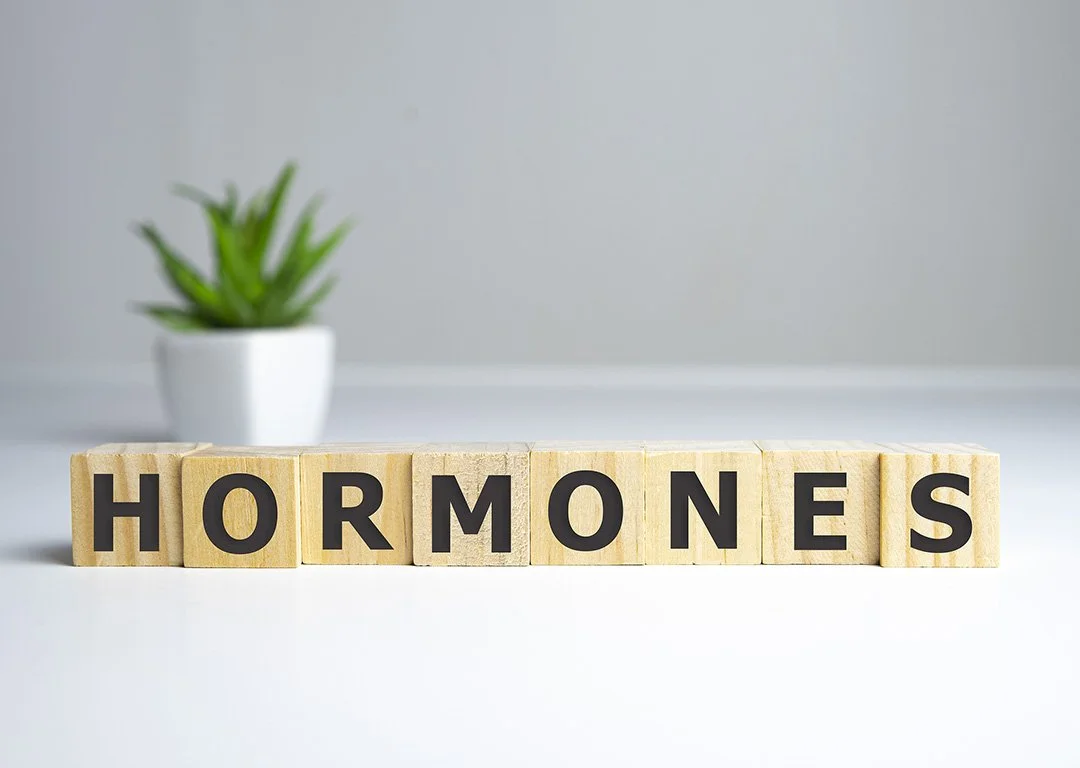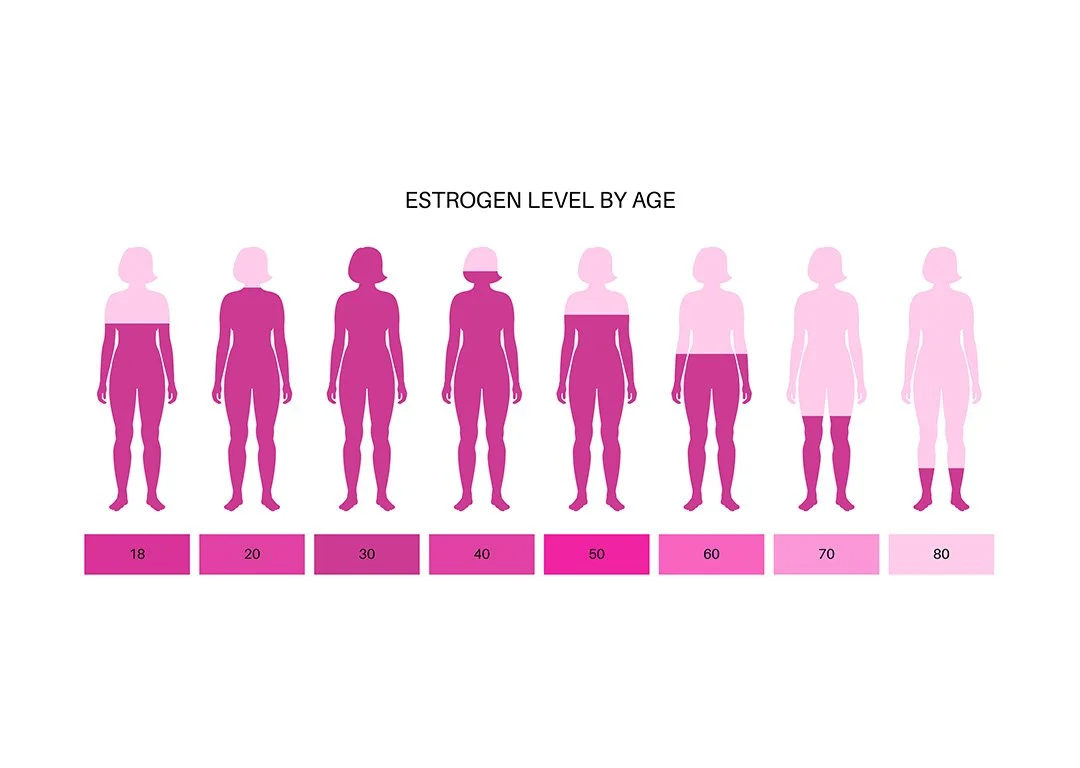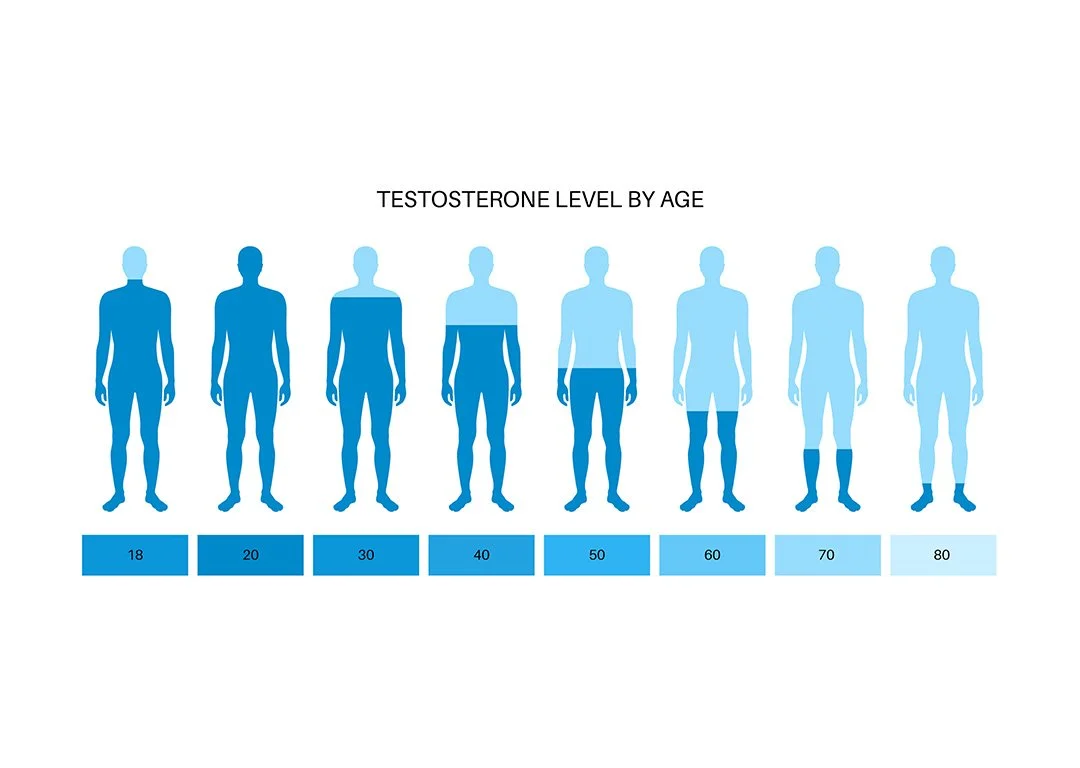How Hormones Change in Your 40s, 50s, and Beyond.
By the time we reach our 40s and 50s, many of us in Pensacola, Pace, Milton, and the surrounding Gulf Coast start to notice subtle — or sometimes not-so-subtle — changes in our bodies. Maybe it’s more fatigue after a morning paddle on the Blackwater River, feeling less motivated for a walk along Pensacola Beach, or finding it harder to maintain your weight despite healthy habits. These shifts often come down to hormonal changes and understanding them is the first step toward regaining your energy, focus, and balance.
1.) The Role of Estrogen & Progesterone
For women, estrogen and progesterone levels begin to decline in the years leading up to menopause — a stage called perimenopause. Symptoms can include hot flashes, mood swings, night sweats, and changes in menstrual cycles. Progesterone’s calming effect on the nervous system is reduced, which can contribute to anxiety or sleep disturbances. Many women in our Pensacola clinic share how these changes affected their enjoyment of local events, from Friday night gallery walks to sunny afternoons at Pensacola Beach.
Research shows that BHRT (bioidentical hormone replacement therapy) may ease symptoms for some women. Mayo Clinic Source.
2.) Testosterone: Not Just for Men
While testosterone is often thought of as a male hormone, women also produce it — and both men and women see a gradual decline with age. Low testosterone can contribute to reduced muscle mass, lower libido, fatigue, and even cognitive changes. For men, this decline often becomes noticeable in their 40s or 50s, affecting everything from workouts at the gym to weekend kayaking trips on the Blackwater River. Optimizing testosterone levels can improve muscle maintenance, mood, and motivation.
3.) Thyroid Hormones and Energy
Thyroid hormones regulate metabolism, heart rate, and energy production. A sluggish thyroid — common in midlife — can cause fatigue, weight gain, and mood changes. It’s one reason some patients in the Pensacola area notice they’re more tired during a morning beach walk or need more caffeine to power through the day. Testing thyroid function is an essential part of any comprehensive hormone evaluation — American Thyroid Association Source.
4.) Cortisol and Stress Resilience
Cortisol is the body’s main stress hormone, and chronic stress can lead to consistently elevated levels — which in turn affect weight, sleep, and immune function. Many patients find their cortisol naturally improves when they incorporate relaxing activities, like sunset strolls along Pensacola Beach or gentle paddleboarding on the Blackwater River.
5.) Lifestyle Strategies for Midlife Hormone Balance
Balanced Nutrition: Include lean proteins, healthy fats, and fiber-rich carbs to stabilize blood sugar.
Strength Training: Supports testosterone, growth hormone, and bone health.
Stress Management: Meditation, yoga, or time outdoors on our beautiful Gulf Coast.
Adequate Sleep: 7–9 hours supports all hormone systems.
Regular Testing: Know your baseline and track changes over time.
6.) The Role of BHRT and Personalized Care
BHRT uses hormones chemically identical to those your body produces to restore optimal balance. It’s not one-size-fits-all — our approach at Emerald Waters Hormone & Weight Loss Clinic involves comprehensive lab testing, an in-depth consultation, and a customized plan. The goal is to relieve symptoms while monitoring safety and effectiveness.
The 40s, 50s, and beyond can be some of the most fulfilling decades of life — full of adventures, travel, and family time. But hormonal shifts can sometimes make you feel like you’re losing your spark. By understanding these changes and taking proactive steps, you can keep enjoying everything from downtown Pensacola events to peaceful afternoons by the Blackwater River or Pensacola Beach.
Ready to learn how your hormones are changing — and what you can do to feel your best?
Schedule your comprehensive hormone evaluation
at Emerald Waters Clinic in Pensacola today.
References:
Mayo Clinic. Menopause Overview. 2022.
American Thyroid Association. Thyroid Health in Older Adults. 2023.




